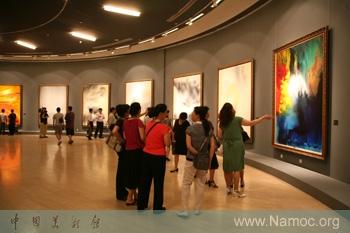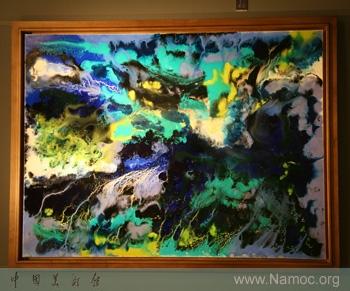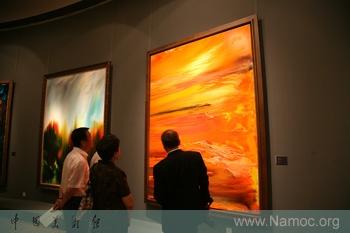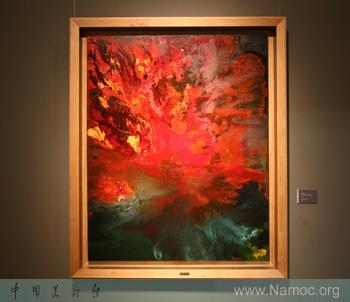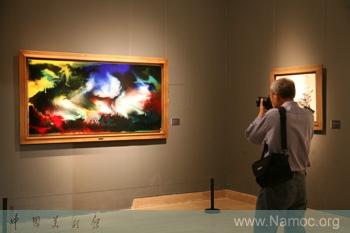An oil painting exhibition by Yan Juntai and his wife Xu Wantian is currently on display at Hall 1 since June 19 until June 22, 2010. The exhibition comprises a total of 90 works, including 13 by Yan Juntai and 13 by Xu Wantian.
Yan Juntai is now board chairman of Taiwan BES Engineering Corporation, whose father is Yen Chia-kan, former leader of the Taiwan area. Taiwan's "Ten Major Construction Projects" promoted by Yen Chia-kan has laid solid foundation for the local economic development, while he was keen on photography and was also a well-known connoisseur.
Influenced by his father, Yan Juntai has been also devoted to studying science and has made remarkable achievements. Yan Juntai started his artistic creation almost in his sixties and became a rare artist with his chairman identity in Taiwan. The reason he learned painting is not only his family history and but aslo his wife Xu Wantian.
Xu Wantian, born in a Xiluo prominent family of Zhanghua County in Taiwan, started to learn painting from her father Li Zhongsheng, a master of modern painting in Taiwan and then went to Tokyo National University of Fine Arts & Music in Japan. Xu Wantian was also taught by Mr. Liu Haisu. She has unique researches on the floriculture, so she likes to paint flowers.
Her paintings are characterized by simple and natural, elegant and unique style. Interested in the art when watching his wife painting, Yan Juntai served as her assistant at first and then tried to establish his own abstract painting world. The couple often painted together and aroused each other's inspiration.
However, as the paintings of Yan Juntai became more and more mature, Yan Juntai volunteered to act as a supporting role. Their practice is a good reflection of their deep love.
Yan Juntai focuses on abstraction and Xu Wantian on concreteness. Yan Juntai s paintings are generous and Xu Wantian s paintings graceful. Visitors are able to appreciate the special art journey of both artists from their paintings. Despite of living in Taiwan and abroad for many years, they are always inheriting the aesthetics of the traditional Chinese literati families. The beauty captured in everyday life has also nourished and accomplished their art.
